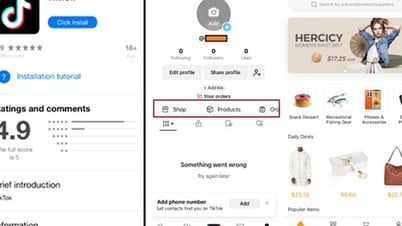
Android phones are being targeted by hackers (Photo: ST).
According to the latest report from Malwarebytes, this year is witnessing an alarming explosion of viruses targeting Android devices, especially spyware and text message scams.
During the first half of the year, researchers at Malwarebytes recorded a sharp increase in mobile threats across the board, with a 151% increase in the number of viruses targeting Google's operating system.
“Attackers know that we instinctively trust our mobile devices,” Shahak Shalev, director of research and development at Malwarebytes, stressed. “We sleep with them, we use them for authentication, and we store our entire digital lives on them.
Now, they are intensifying their attacks, increasing the volume and sophistication of mobile threats.”
Explosion of attack types
The most worrying type of attack is malicious spyware, which is designed to steal user data without consent.
This type of malware increased by 147% in the first half of the year. In particular, from February to March, researchers recorded four times more spyware viruses than the overall number.
Notable names among these viruses are KoSpy and FireScam.
At the same time, viruses spread via SMS (smishing) are also exploding. From April to May, the number of viruses designed to be sent via text messages increased by 692%.
Smishing is becoming more sophisticated than ever, with “better-designed lures” even using generative AI to trick users.
Cybersecurity firm Malwarebytes explains that the increase is largely due to “seasonal scams” that take advantage of times when users are vulnerable to personal stress.
“Cybercriminals are no longer satisfied with simple scams: They are building real, sustainable criminal enterprises and playing for the long term, by developing strategies to monetize every data collected, every user behavior exploited,” Shahak Shalev said.
Outdated phones - a tasty bait for hackers
Another important reason for this alarming situation is the fact that a large portion of Android smartphones in circulation are outdated. More than 30% of Android devices are currently unable to upgrade to new operating systems, lacking necessary security updates, making them a prime target for cybercriminals.
Cybersecurity experts advise users to be extremely vigilant on all platforms, including official app stores like the Play Store. Many malicious apps can still bypass Google's security measures.
User note:
Use only apps from reputable and well-known developers.
Double check the permissions an app requests before installing.
Turn off app notifications when not needed.
Use a reliable Android antivirus software.
Source: https://dantri.com.vn/cong-nghe/lan-song-tan-cong-mang-dien-thoai-android-so-luong-virus-bung-no-20250702104328303.htm




![[Photo] The first meeting of the Cooperation Committee between the National Assembly of Vietnam and the National People's Congress of China](https://vphoto.vietnam.vn/thumb/1200x675/vietnam/resource/IMAGE/2025/8/31/f5ed4def2e8f48e1a69b31464d355e12)
![[Photo] Marching together in the hearts of the people](https://vphoto.vietnam.vn/thumb/1200x675/vietnam/resource/IMAGE/2025/8/31/8b778f9202e54a60919734e6f1d938c3)
![[Photo] National Assembly Chairman Tran Thanh Man welcomes and holds talks with Chairman of the National People's Congress of China Zhao Leji](https://vphoto.vietnam.vn/thumb/1200x675/vietnam/resource/IMAGE/2025/8/31/9fa5b4d3f67d450682c03d35cabba711)
![[Photo] General Secretary To Lam receives Chairman of the National People's Congress of China Zhao Leji](https://vphoto.vietnam.vn/thumb/1200x675/vietnam/resource/IMAGE/2025/8/31/5af9b8d4ba2143348afe1c7ce6b7fa04)























































































Comment (0)